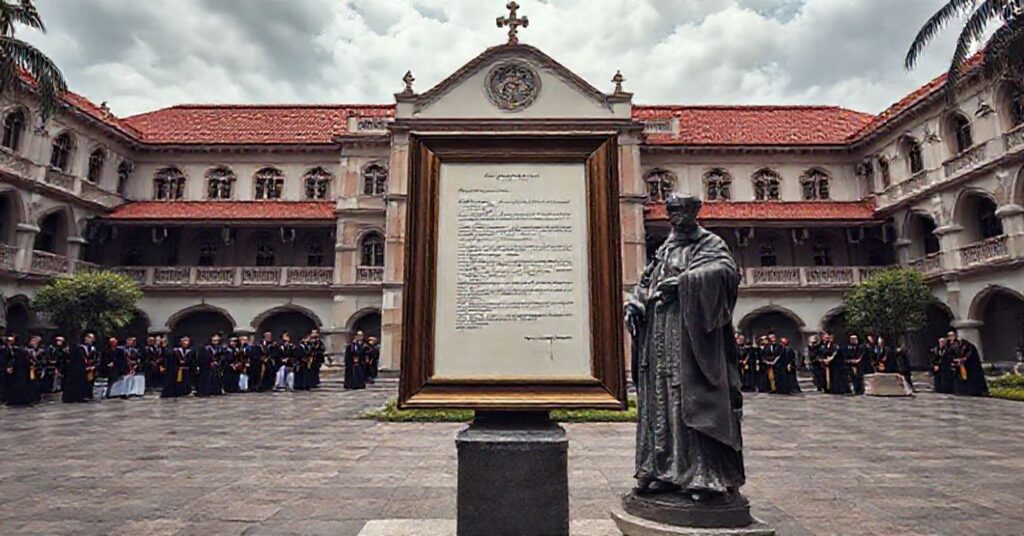Hoc mense (1961.06.15)
Venerable Brother, health and Apostolic Blessing.
In this brief Latin letter dated June 15, 1961, John XXIII congratulates Eugène Tisserant on the fiftieth anniversary of his promotion to the cardinalate (bestowed by Pius XI). The text praises Tisserant’s erudition, his work in the Vatican Library, his role connected with the Oriental Church, his diocesan titles, and his admission to the Académie Française. It culminates in courteous wishes for perseverance in “sincere faith,” wisdom, and further merits, sealed with an “Apostolic Blessing.”
Behind this polished façade of curial compliment lies a distilled expression of the neo-church’s humanist, academicist, and ecumenical self-idolatry, in which the supernatural mission of the Church is silently displaced by the cult of culture, diplomacy, and institutional self-congratulation.










